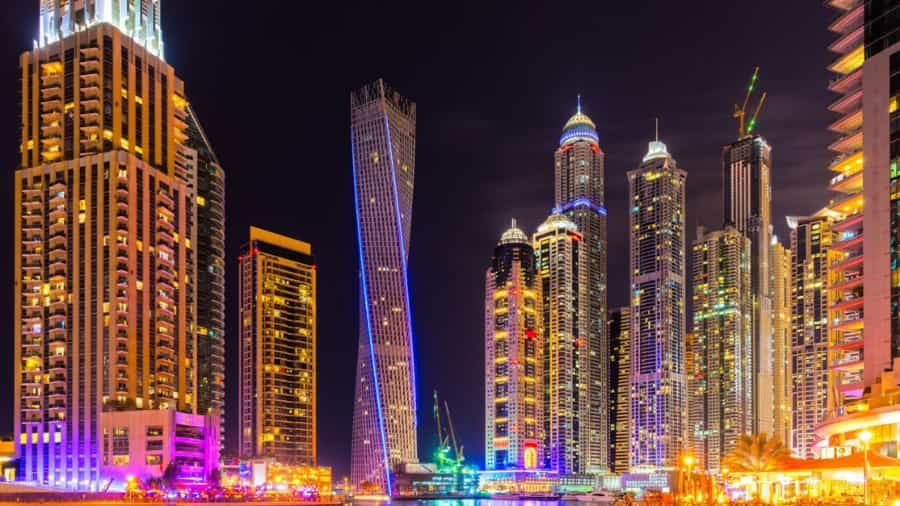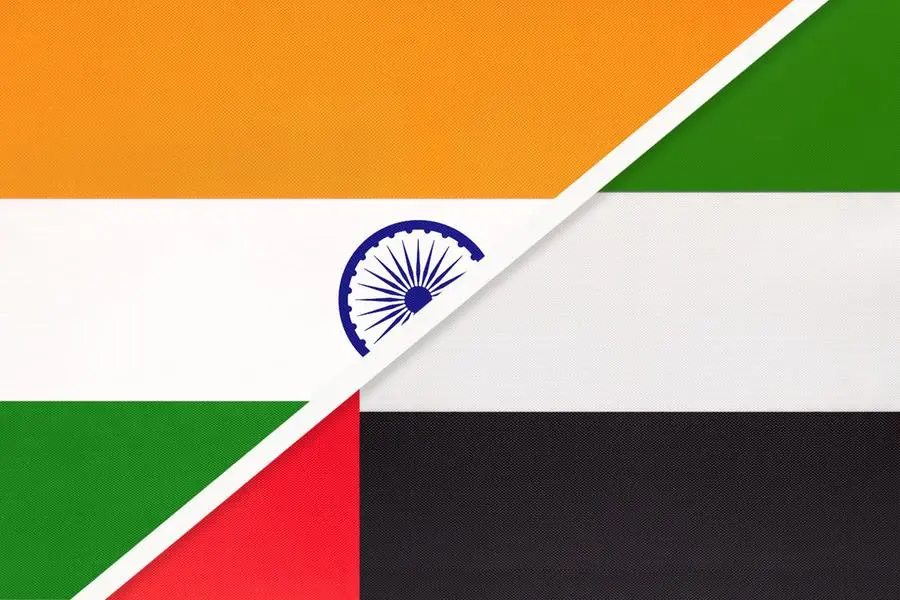Relocating from India to Dubai is a major step toward achieving career aspirations, experiencing a luxurious lifestyle, and accessing global opportunities. Known as a global hub for expatriates, Dubai offers a vibrant culture, strong economic opportunities, and a tax-free income that appeals to Indian professionals and families alike. This guide dives deep into why and how Indians move to Dubai and the steps to ensure a smooth transition.
Why move from India to Dubai?
Dubai’s allure is undeniable, especially for Indian expats. The city’s state-of-the-art infrastructure, business-friendly environment, and thriving job market attract thousands annually. Moreover, its close geographical proximity to India makes it an ideal destination for families and professionals looking to explore global opportunities without straying too far from home.
Relocation to Dubai from India is not just a career move but a chance to experience a cosmopolitan lifestyle.
Exploring Dubai as a Popular Destination for Indian Expats
Dubai’s safety standards, multicultural environment, and tax-free income policy enhance its appeal. Indian expatriates thrive here with access to high-quality healthcare, top-tier education, and countless entertainment options. Whether you’re seeking a better standard of living or new career prospects, Dubai has something for everyone.
Benefits of Relocating to Dubai from India
- Career Opportunities: Industries like IT, construction, healthcare, and finance are booming in Dubai, offering lucrative roles to Indian professionals.
- Lifestyle Enhancements: From luxury shopping malls to sandy beaches, Dubai offers a lifestyle upgrade that many aspire to achieve.
- Ease of Connectivity: Direct flights to major Indian cities make it easy for expats to visit home regularly.
Related post: Why Monthly Rentals in Dubai Are Perfect for Expats

Understanding Work Visa Requirements for Indians in Dubai
Before relocating, securing the correct work visa is essential. The UAE government has streamlined its visa application process to make it accessible for skilled professionals worldwide. Your employer will typically sponsor the visa and guide you through the application.
Overview of Work Visa Application Process
The process includes medical tests, documentation, and obtaining approval from the General Directorate of Residency and Foreigners Affairs (GDRFA). It’s vital to have your educational certificates attested and ready.
- Documents Required: A valid passport, passport-sized photos, attested certificates, job contract, and medical fitness report.
- Employer’s Role: Your employer will handle visa application costs and ensure compliance with labor laws.
In most cases, work visas are granted for 1–3 years and are renewable. Ensure you’re aware of the terms set by your employer to avoid legal complications.
Employer Responsibilities in Dubai for Visa Sponsorship
Employers are responsible for applying for your visa, covering visa expenses, and providing medical insurance as per UAE law.
Cost of Living in Dubai for Indians
Understanding the cost of living is crucial for budgeting and planning your move. Dubai’s costs are generally higher than major Indian cities, but its tax-free salaries make up for it.
- Housing: Rent constitutes the largest expense. Studio apartments range from AED 3,000–5,000 per month, while villas can exceed AED 10,000.
- Food and Groceries: Monthly grocery expenses for a single person average AED 1,200, while eating out can vary based on preferences.
- Transportation: Public transport like the Dubai Metro is affordable at AED 300–500 per month. Owning a car will involve fuel and insurance costs.
Though costlier than India, Dubai offers a high quality of life. Careful planning ensures your income can accommodate living expenses while allowing for savings.
Indian Community and Cultural Integration in Dubai
One of the key factors making Dubai attractive is its vibrant Indian community. Festivals like Diwali, Holi, and Eid are celebrated with enthusiasm, ensuring Indian expats never feel far from home.
Popular neighborhoods like Bur Dubai, Karama, and Al Nahda house significant Indian populations. These areas feature Indian restaurants, grocery stores, and places of worship, making cultural integration seamless.
Adjusting to Dubai’s culture involves understanding its conservative customs and respecting local laws. Indians often find the blend of modernity and tradition in Dubai easy to adapt to, with the added comfort of community support.
Finding Jobs in Dubai for Indians
Dubai’s competitive job market rewards skilled professionals, especially in sectors like technology, healthcare, and hospitality. Networking is crucial for accessing these opportunities.
- Job Portals: Platforms like Bayt, Naukrigulf, and LinkedIn are excellent resources.
- Recruitment Agencies: Several agencies specialize in connecting Indian professionals with UAE employers.
- Networking Events: Attend industry-specific events to meet potential employers and colleagues.
Tailor your CV to the UAE job market and prepare for interviews that focus on your adaptability and skills.
Related Post: All about short-term rental contracts in Dubai

Dubai Housing Options for Indian Expats
Finding suitable housing is essential for a comfortable relocation. Dubai offers a wide range of options from budget-friendly apartments to luxury villas.
- Affordable Areas: International City and Al Qusais cater to budget-conscious expats.
- Luxury Areas: Jumeirah and Dubai Marina provide upscale living environments.
Rental agreements typically require a security deposit and post-dated checks. Consider platforms like Homebook.ae to find housing that matches your needs and budget.
Relocation Tips for Dubai: What Indians Should Know
Preparing for your move involves meticulous planning. Ensure all necessary documents are attested and ready for use. Arrange temporary housing for the initial weeks and familiarize yourself with Dubai’s healthcare and education systems.
Health insurance is mandatory for all residents, and your employer should provide basic coverage. Families moving with children can explore schools offering CBSE and ICSE curricula, ensuring continuity in education.
Challenges of Moving to Dubai from India
While Dubai offers numerous advantages, adjusting to a new culture and climate can be challenging. The extreme summer heat and conservative cultural norms may require adaptation.
Understanding the UAE’s legal system is another essential aspect of settling in. Expats must respect local laws and ensure compliance to avoid penalties.
Homesickness is common among new expats. Staying connected with family through regular visits or online communication helps ease the transition.
Benefits of Moving to Dubai from India
Relocating to Dubai brings tangible benefits that outweigh the challenges. Key advantages include:
- Tax-Free Salaries: Maximize your earnings with Dubai’s tax-free income policy.
- World-Class Infrastructure: From healthcare to entertainment, Dubai offers unmatched facilities.
- Proximity to India: Regular flights make it convenient for expats to stay connected with loved ones.

Conclusion
Moving from India to Dubai is a rewarding journey with numerous professional and personal benefits. By understanding visa requirements, cost of living, and cultural integration, you can prepare for a successful relocation. With platforms like Homebook.ae, finding housing and resources becomes easier, ensuring a smooth transition to your new home in Dubai.
Frequently Asked Questions about Moving from India to Dubai
Common questions about Dubai’s office rentals answered:
What is the Average Cost of Moving to Dubai from India?
The cost of moving to Dubai from India can vary widely depending on several factors such as the city you’re relocating from, the services you opt for, and the size of your move. On average, you can expect to pay between AED 5,000 and AED 10,000 for the entire process. This typically includes visa fees, flight tickets, initial accommodation, and shipping of personal belongings.
- Visa Fees: The cost of a work visa is typically borne by your employer, but you might be required to pay additional costs for dependents or medical insurance.
- Airfare: Round-trip flights from major Indian cities like Delhi or Mumbai to Dubai can range from AED 1,000 to AED 2,500, depending on the time of year.
- Initial Accommodation: For temporary accommodation, hotels or short-term rentals can cost around AED 3,000–5,000 per month, depending on the location and type of housing.
- Shipping Belongings: The cost of shipping personal items will vary based on weight and distance, with rates starting at around AED 1,500 for a small container.
It’s advisable to plan ahead and research relocation services to get the best rates. Consider using reputable relocation companies to manage logistics.
Can Indian Professionals Easily Find Jobs in Dubai?
Yes, Indian professionals can find jobs relatively easily in Dubai, particularly in industries such as technology, construction, healthcare, education, and hospitality. Dubai’s growing economy, diverse job market, and tax-free income opportunities attract a large number of expats, especially Indians, who possess sought-after skills and qualifications.
- In-Demand Sectors: Information technology (IT), healthcare, engineering, construction, education, and hospitality are the most in-demand sectors. Dubai’s rapidly growing infrastructure and healthcare sectors especially rely on skilled professionals from India.
- Job Search Platforms: Websites like LinkedIn, Bayt, and Naukrigulf are excellent resources for job opportunities. Networking also plays a huge role in job acquisition in Dubai.
- Work Visa Sponsorship: In Dubai, employers are typically responsible for sponsoring your visa, which makes it easier for skilled professionals to transition to the UAE job market. However, securing a job before arriving is recommended, as it simplifies the visa application process.
Overall, while the job market is competitive, there are plenty of opportunities for qualified Indian professionals.
Is Dubai Safe for Indian Expats and Families?
Dubai is considered one of the safest cities globally, with a very low crime rate and a strong legal framework that ensures public safety. As an Indian expat, you and your family can enjoy a secure environment with world-class facilities and services.
- Low Crime Rate: Dubai has a very low incidence of violent crime, and theft is relatively rare due to strict laws and security measures, including surveillance cameras in public areas.
- Expat-Friendly: The city’s expat population, including Indians, enjoys a peaceful coexistence with the local Emirati population, thanks to Dubai’s inclusive policies. There are numerous Indian community groups and cultural events that foster a sense of belonging for new arrivals.
- Safe for Families: Dubai is especially family-friendly, with clean public spaces, excellent schools, healthcare facilities, and recreational activities. It also has strict regulations on child safety and protection.
- Legal System: It’s important to note that Dubai has a strict legal system, so it’s crucial for expats to follow local laws, including rules regarding alcohol consumption, public behavior, and dress codes.
With a strong police presence, a safe environment, and family-friendly amenities, Dubai is regarded as one of the safest places for Indian expats and families to live.
How Long Does It Take to Get a Work Visa for Dubai?
The process of obtaining a work visa for Dubai typically takes between two to four weeks, depending on the type of visa and whether all documentation is in order. The process is streamlined for professionals with a job offer from a licensed employer in Dubai.
- Employer’s Role: Your employer will generally initiate the work visa process by submitting your application to the Ministry of Human Resources and Emiratisation (MOHRE). Once approved, you’ll receive a work permit.
- Document Attestation: For Indian citizens, documents like educational certificates, medical tests, and passports must be attested by relevant authorities before submission. This can take additional time.
- Medical Test and Emirates ID: Once the work permit is issued, you will undergo a medical fitness test. After passing the medical examination, you will apply for an Emirates ID and residency permit.
- Final Approval and Residency Visa: After completing all steps, the residency visa will be stamped in your passport, and you will be officially allowed to live and work in Dubai.
Overall, the entire process can take anywhere from 2 to 6 weeks, depending on the complexity and your documentation readiness.
What Areas in Dubai Are Best for Indian Families?
Several areas in Dubai cater specifically to the needs of Indian expats, offering affordable housing, proximity to Indian schools and cultural amenities, and easy access to work locations. Dubai lifestyle for Indian expats includes many Neighborhoods with variety of options that suits your needs, some of the neighborhoods include:
- Bur Dubai: Known for its Indian community presence, affordable housing, and proximity to schools and hospitals. It offers a traditional Dubai experience with easy access to markets and cultural centers.
- Karama: Karama is home to many Indian families and offers affordable apartments and villas, along with a variety of Indian restaurants, shops, and temples.
- Al Nahda: A more budget-friendly neighborhood for families, Al Nahda is popular for its family-oriented lifestyle, with many parks, schools, and shopping malls. (See more at Room fore rent in Al Nahda)
- Jumeirah: While Jumeirah is on the expensive side, it offers a luxurious lifestyle with international schools and is also popular with families seeking spacious homes and easy access to beaches.
- Discovery Gardens: This area is ideal for those seeking affordable rental prices and proximity to commercial hubs. It’s a quieter area with many green spaces, making it great for families. (See more at Room for rent in Discovery Gardens dubai)
These neighborhoods are ideal for Indian families who prefer a balance of affordability, amenities, and cultural integration, making it easy to settle into life in Dubai.



